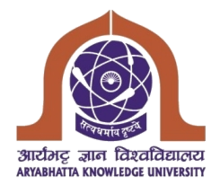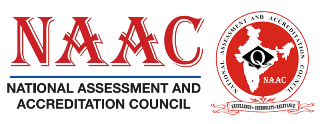Maitreya College of Education and Management, Hajipur (Bihar) is located on the land of Jain Tirthankar, Lord Mahavira, Vaishali. A vibrant and modern co-educational institute established by Maitreya Education Trust, Patna(Bihar) to impart training, knowledge and teaching in the field of Education and Management. It aims to be an institution of world class repute through its professionally managed governance and administration, hand-picked faculties, international teaching techniques, industry oriented curriculum and employee centric policies.
1.Vision
- To elevate the standards of teaching and understanding of subjects.
Elevating the standards of teaching and understanding of subjects is a fundamental goal within the broader context of shaping education. Achieving this goal involves our several key strategies and considerations and that is Teacher Training and Professional Development, Curriculum Enhancement, Innovative Teaching Methods, Individualized Learning, Assessment and Feedback, Technology Integration, Interdisciplinary Approaches, Cultivating Critical Thinking and Problem-Solving Skills, Research-Based Practices, Parent and Community Engagement, Peer Learning, Teacher Collaboration and Continuous Assessment and Improvement. Elevating the standards of teaching and understanding of subjects is an ongoing process that requires collaboration among educators, policymakers, students, and communities. It involves a commitment to continuous improvement, a focus on student-centered learning, and a willingness to adapt to changing educational needs and challenges.
- MCEM to become a brand in the field of education.
Becoming a recognized “brand” in the field of education typically implies establishing a strong reputation, identity and presence within the education sector. Becoming a well-regarded brand in the field of education takes time, effort, and a commitment to excellence. It involves building a positive reputation, delivering on promises, and consistently providing value to students and the education community you serve.
- Go Global.
Global Perspective: Preparing students for the challenges and opportunities of a globalized world by incorporating international perspectives and global competency into the curriculum. The goal of shaping education is to ensure that educational systems are responsive, adaptable, and capable of equipping individuals with the knowledge, skills, and values they need to thrive in the modern world. It often involves a dynamic and ongoing process of assessment, adjustment, and innovation to meet the evolving needs of students and society.
2.Mission -“Shaping Education”
Our mission “Shaping Education” refers to the process of influencing, designing, or molding the field of education to meet specific goals, values, and objectives. It encompasses a wide range of activities and strategies aimed at improving the quality and effectiveness of education systems. Shaping education can take various forms and can be driven by different stakeholders, including policymakers, educators, researchers, and community members.
Key aspects of shaping education include:
- Curriculum Development: Designing and updating the content and structure of educational programs and courses to align with the needs of students and society. This may involve revising subject matter, incorporating new technologies, and addressing evolving educational trends.
- Pedagogical Innovation: Exploring and adopting innovative teaching methods and strategies to enhance student learning. This might include incorporating active learning techniques, technology integration, and differentiated instruction.
- Educational Technology: Integrating technology into the classroom to enhance teaching and learning experiences. This can involve using digital tools, online resources, and learning management systems.
- Inclusive Education: Promoting inclusivity by creating environments where all students, regardless of their abilities, backgrounds, or special needs, can access quality education. This often involves special education programs, accessibility features, and diversity and inclusion initiatives.
- Lifelong Learning: Recognizing that education is not limited to formal schooling but continues throughout one’s life. Encouraging a culture of lifelong learning supports ongoing skill development and adaptation to changing societal needs.
- Assessment and Evaluation: Developing fair and effective methods to assess student progress, teacher performance, and overall educational system effectiveness. This can involve standardized testing, formative assessment, and data-driven decision-making.
- Community Engagement: Involving parents, families, and local communities in the educational process to create a collaborative and supportive learning environment.
- Research and Development: Investing in educational research to inform evidence-based practices and policies that improve education outcomes.
3.Recognition & Affiliation
Recognised by National Council of Teacher Education (NCTE) vide Letter No. ERC/7-136.6.31/NCTE/B.Ed/2012/13265 and Affiliated to Aryabhatta Knowledge University (AKU), Patna
4.Campus and Infrastructure
College Campus is a wireless campus spread over 2 acres in the prime location of EPIP Campus, Hajipur. College offers well planned, ventilated and spacious classrooms, equipped with latest teaching equipments conducive for focused learning and development. State-of-art labs act as training grounds for aspiring teachers. Auditorium with a seating capacity of over 300 students will serve as a platform to host seminars, presentations, regular events and reputed guests from all over the country.
Library is a spacious set up with latest editions of books on different subjects, Reference Books, Encyclopedias, Journals and Periodicals. Library also has separate area for group study, private reading and Internet surfing.
Our Hi-tech conference room is equipped to hold group discussions, presentations and meetings for the faculties and esteemed guests.
Cafeteria and Snacks “Café” is specially developed to cater clean and hygienic snacks and meal to our employee, students and visitors too. Campus has 24 hours safe drinking water facility. Additionally, we have pantry for faculty and staff members to avail personalized service. Boys & Girls can relax in their separate Common Rooms furnished with indoor entertainment. Separate Restrooms for Staff (male and female) & Students (male and female) is available on every floor.

Code of Conduct
Code of Conduct for Students:
- The smart identity cum library card with photograph affixed must be carried by the student at all the times while on the campus and must be produced on demand.
- Student must attend the lectures and practicals regularly as per the time tables.
- Student should have minimum 75% attendance in theory and practical.
- Students’ conduct should be satisfactory.
- The absence from the institute without leave will be considered a breach of discipline.
- Student must appear for all the tests and examinations and show satisfactory progress.
- Students are advised to read all the notices displayed on the notice boards.
- The conduct of the student in the premises of the institute as well as in their classes should cause no disturbance to fellow students or other classes.
- Student must not loiter in the institute premises.
- No society or association must be formed in the institute or in the hostels and no person should be invited to address a meeting without principal’s prior permission.
- No trips should be arranged without prior consent of the principal.
- Students are expected to take proper care of the institute’s property. Any damage done to the property of the institute by disfiguring the walls, doors, fittings or breaking the furniture, etc. is a breach of discipline.
Code of Conduct for Teachers:
- Communicate clearly with the students in writing the instructions for each assignment.
- Be updated in the knowledge of subject and the current affairs.
- Prepare thoroughly the lecture to be delivered in advance.
- Conduct lectures and practical’s as per the time table.
- Use modern tools of teaching to make the lectures more interesting (Audio/ Visual Aids).
- Attendance of the students should be recorded regularly.
- Complete the syllabus in stipulated time.
- Conduct all the examinations as per the scheduled time table.
- Evaluate all the examinations in the stipulated time.
- To conduct examinations that minimizes the opportunity for scholastic dishonesty.
- Be polite to the students- listen their problems and should make efforts to solve them.
- Be in contact with the parents / guardians of the students.
- Take the prior approval of leave from respective authority and make the alternative arrangements for the lecture and practical.
- Follow the rules, regulations and instructions of the institute from time to time.
- To consistently be on guard for plagiarism.
Code of Conduct for Principal:
- Principal being a Head of Institution is answerable for all academic, financial and administrative activities of the institute.
- Review current academic programmes, collaborative programmes and Human resources management of the institute.
- Admission authority for the institute to implement admission process as prescribed by University and state government.
- Development and implementation of strategic plan for short term and long term development of the institute and sustainable quality improvement.
- Plan and facilitate guidance, counseling and other student’s services at institute level.
- Maintaining support services, academic facilities etc.
- Discuss and approve financial estimates, annual reports, accounts and audit reports time to time. Maintain necessary records of the institute in stipulated formats.
- Demonstrate care and commitment to academic excellence and plan to organize faculty and supporting staff development programs.
- Promote interactions with all stake-holders, facilitate student’s placements and students development programs.
- To act as a chief officer in-charge for examinations.
- To facilitate industry interactions.
- To plan and implement the activities to take care of hygiene, safety and housekeeping in the institute.
- Take teaching load prescribed as per the norms issued time to time by state government.
- Communicate regularly with all members of the institute.
- Evaluate the performance of faculty and supporting staff.
- Upliftment of Institution’s image in the society.
- To lead the accreditation activities of institute for various quality standards.
Code of Conduct for Support Staff:
- Commence work on time.
- Use all work hours productively and ensure that their activities in the workplace do not impede the effective operation of their department.
- Maintain a supportive environment for while performing their assigned duties.
- Respect confidentiality in all matters.
- Understand the job scope, practices, and procedures relating to their position.
- Ensure accuracy and thoroughness in the performance of their assigned duties.
- Meet targets regarding work to be performed to the best of their ability.
- Manage time effectively.
- Be well-organized.
- Demonstrate ability to solve problem within the scope of their position.
- Demonstrate ability to work independently when appropriate.
- Show initiative.
- Notify their in-charge if they are unable to come to work. Submit leave application to the in-charge if want to avail vacation.
Rules for Parking:
- All vehicles should be parked in the parking area provided by the institute.
- A vehicle should be properly locked and parked.
- A vehicle without a lock will not be allowed in the parking.
- The institute will not be held responsible for vehicle held outside parking area of the institute.
Examination Rules:
- The student must have minimum 75% attendance in theory and practical of the respective subject.
- Student must appear for all internal as well as university examinations.
- In case the student is unable to appear for examination due to medical or other reason beyond her control, she should make the case known to the examination section and the principal for consideration of matter with satisfactory documents to support her case.
- Student must read the scheduled timetable of examination carefully and check regularly the changes made in time table if any.
- Student must be present in the examination hall ten minutes before the start of examination.
- The student should obey the instructions given by the supervisor in the examination hall.
- Student should not speak or communicate in any way with any other candidate in the examination hall during the examination.
- Exchange of writing materials, mathematical instruments etc, is strictly prohibited.
- Student must not enter an examination hall more than half-an-hour after the start of an examination.
- Also student must not leave an examination hall less than half-an-hour before the end of an exam.
- Student must not carry notes, blank papers, books, calculator, mobile phone or any other electronic data storage device with them during the exam. All rough work must be done in the exam booklets provided during the exam.
- A warning bell will be given ten minutes before the close of the examination; at the second bell student must stop writing and be ready to hand over the answer-books to the supervisor. Student must not leave the seat until all answer-books are collected by the supervisor.


